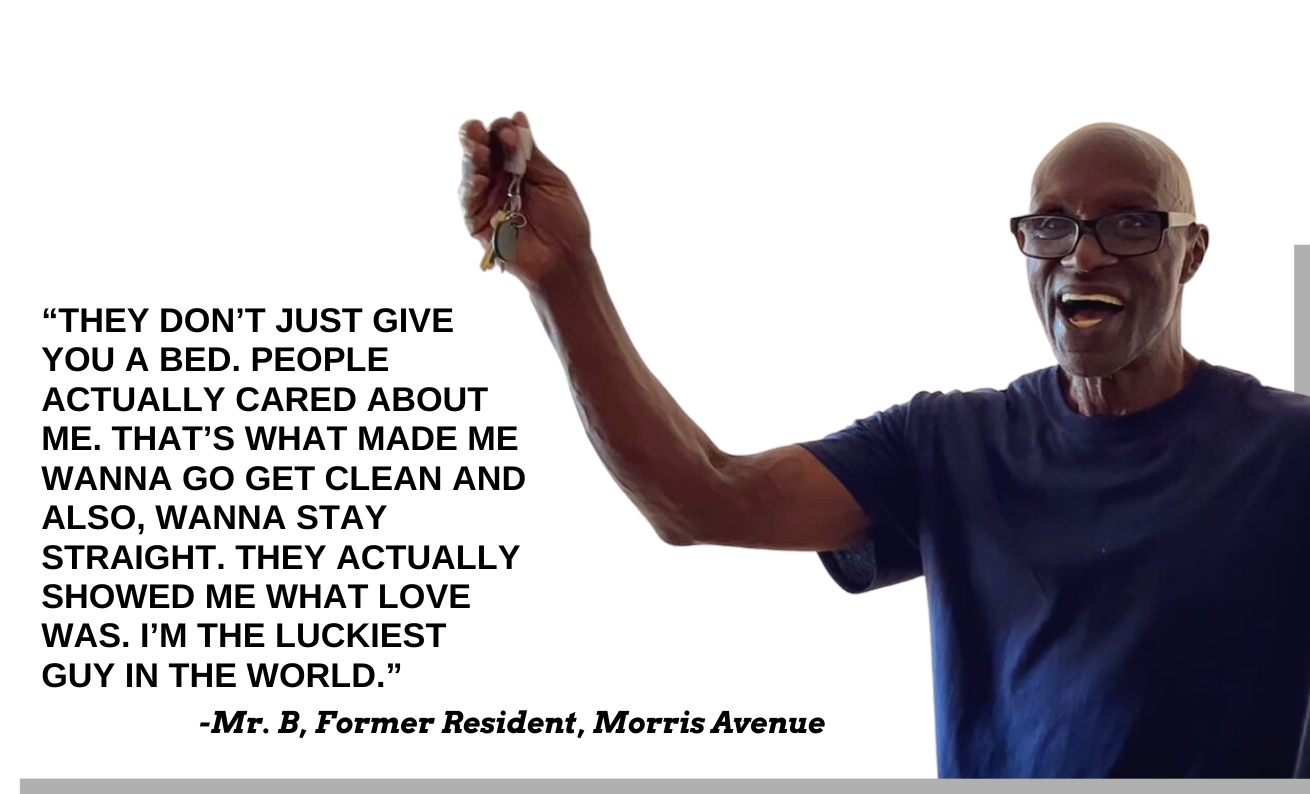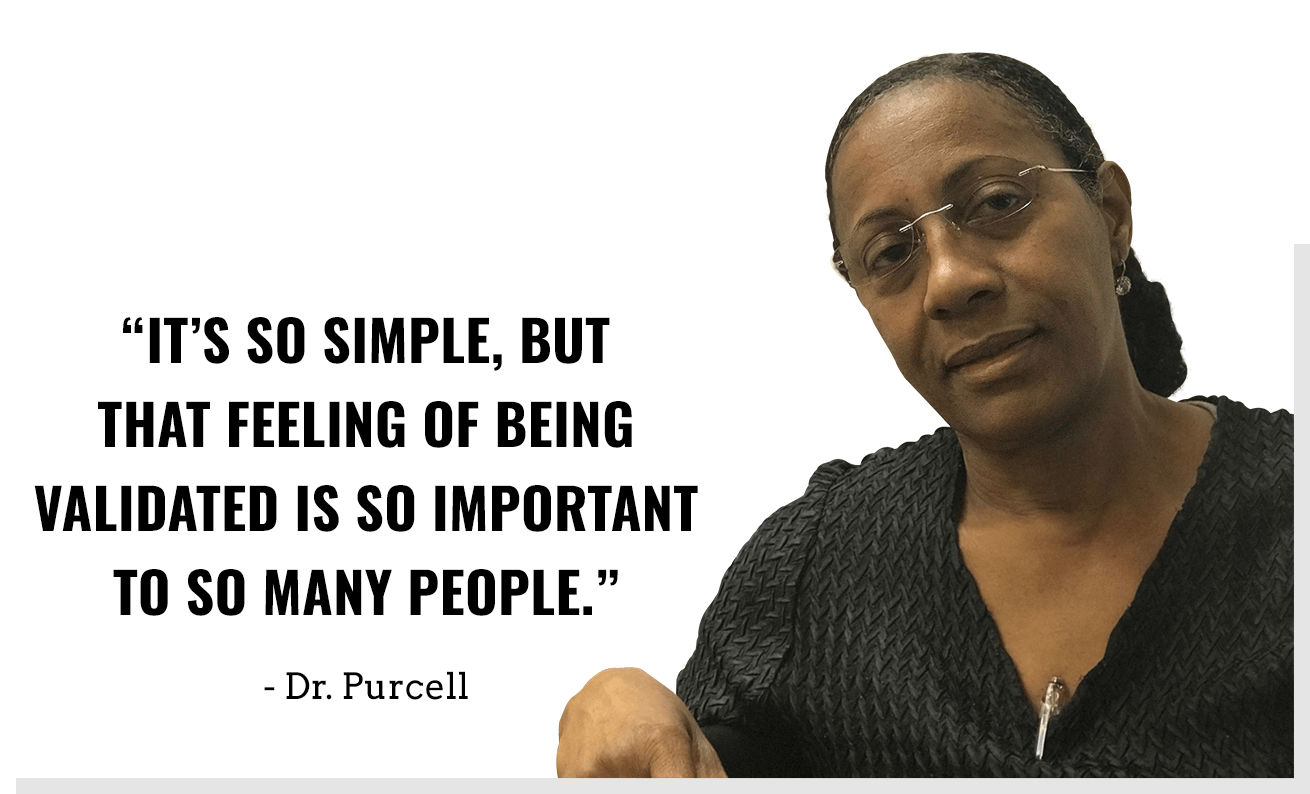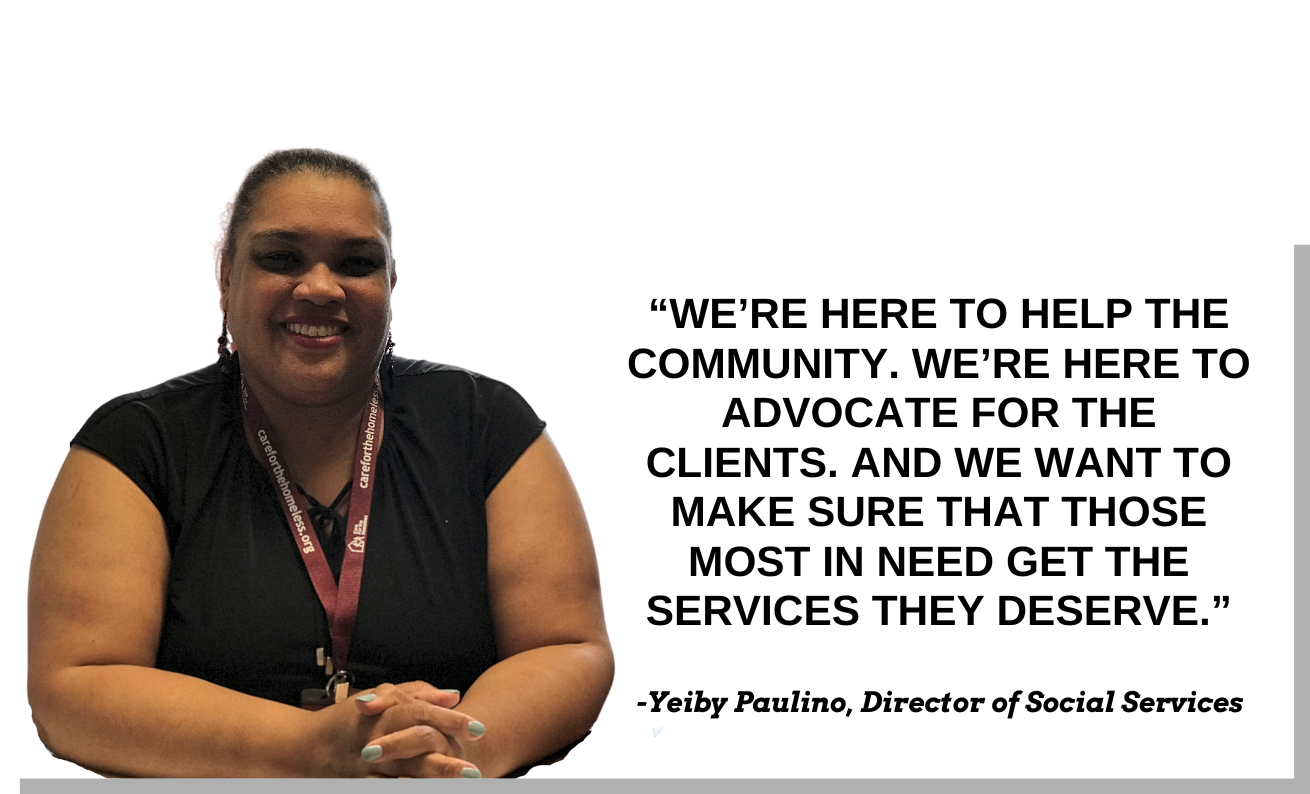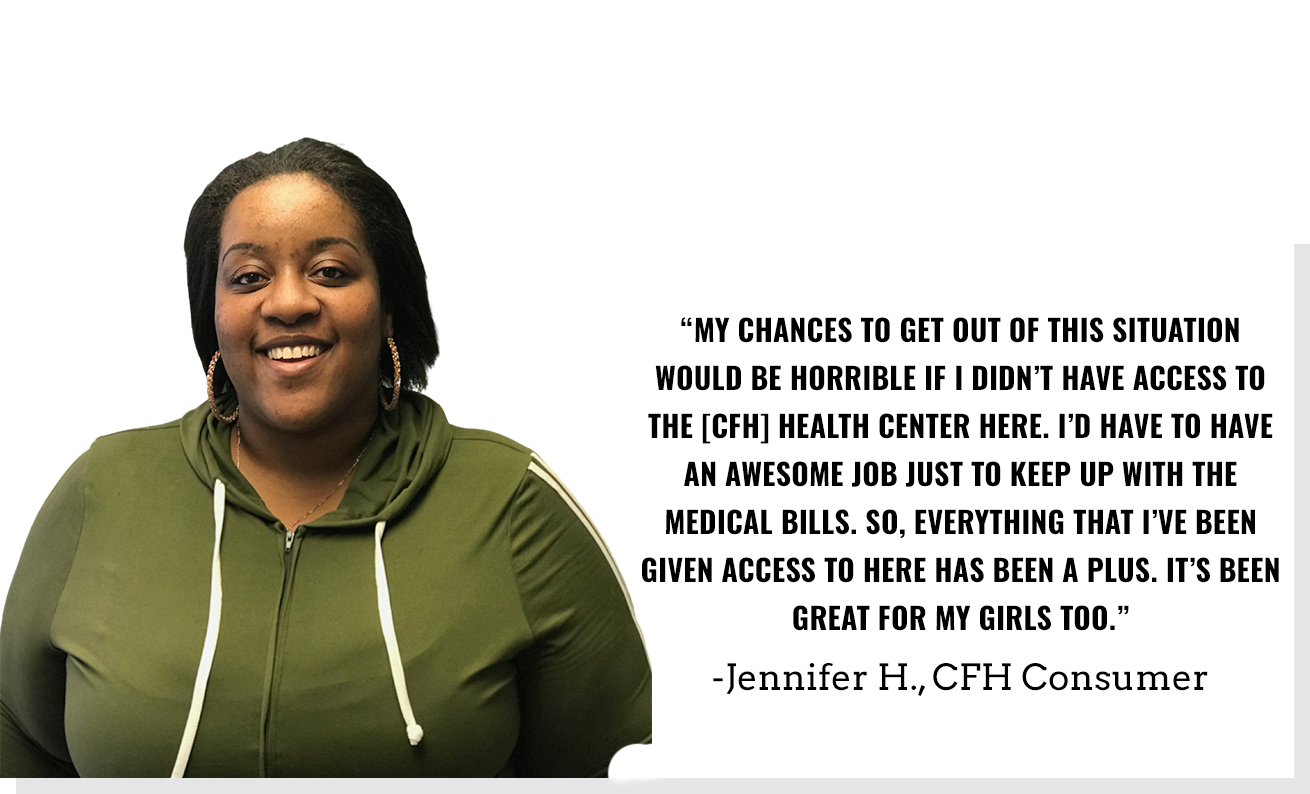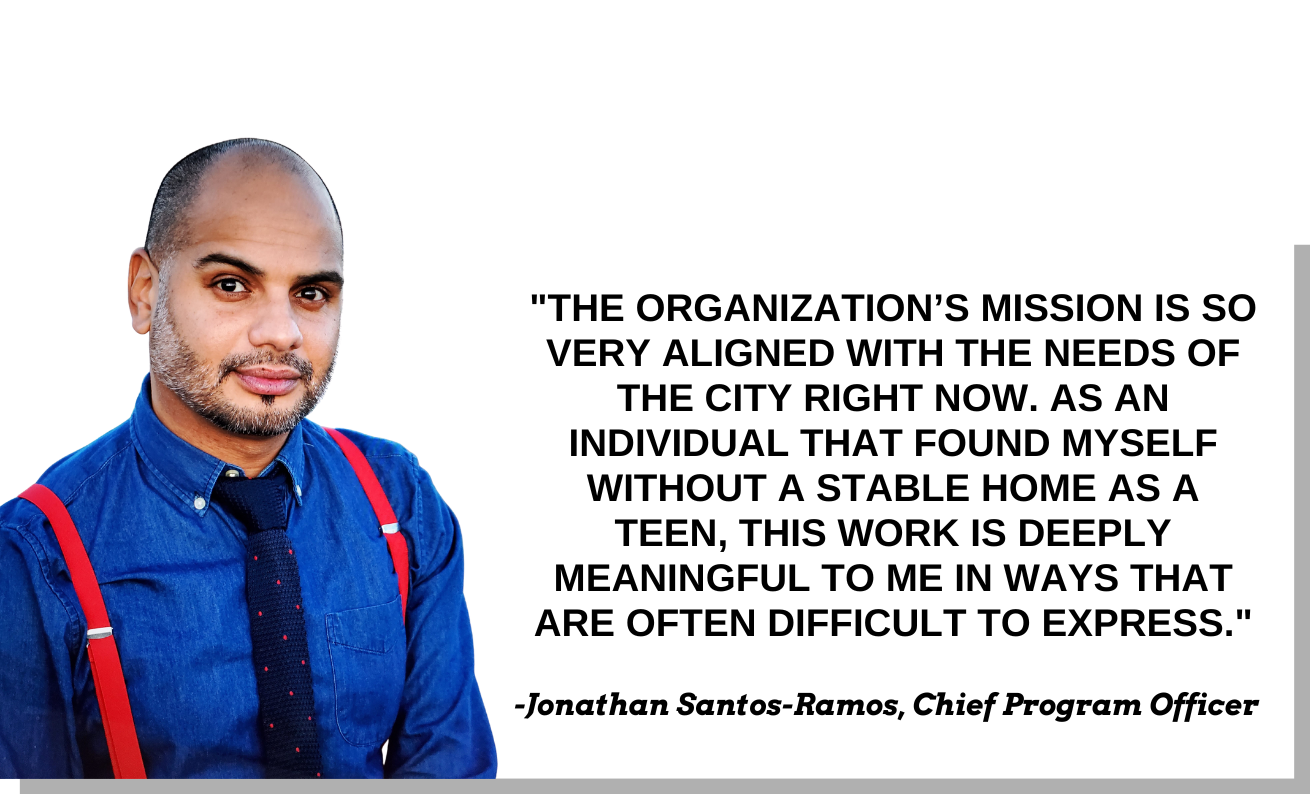“Healthcare is a right for all people”
In this episode of “Meet CFH,” we sat down with Susan Moscou, Nurse Practitioner at our Jerome Avenue Men’s Shelter.
This interview has been edited for length and clarity.
My name is Susie Moscou. I am a Nurse Practitioner at Care For the Homeless. I am both a Family Nurse Practitioner and a Psychiatric Mental Health Nurse Practitioner.
Where do you work?
The site that I have worked for many, many years is here: Jerome Avenue Men’s Shelter. But I’ve also worked in many, many other shelters at Care For the Homeless, such as Jackson Family Shelter, Nelson Family Shelter, Living Room—because I started working for Care For the Homeless in 1995.
How did you decide to get into this work?
First of all: I am a child of the 60s, so I grew up being an activist for civil rights, women’s rights, all kinds of political and social rights. When I went to Yale University to become a Family Nurse Practitioner, I applied for the Natural Health Service Corps, which, if they funded you, you were required to work in what they call a Health Professional Shortage Area or Medically Underserved Community. I would have done this anyway, so it was a gift that I could get my education paid for and know full well that I would come back. I’ve always worked in communities that were either medically underserved or, let’s say, economically under resourced.
Why do you feel it’s important to serve those communities?
It continues my social commitment to how I think the world should be a better place and that healthcare is a right for all people. It’s not just for people who have money. And it kind of is problematic that in the United States, we really don’t believe that it’s a universal right that everybody should have. And [even though] we are one of the richest developed nations in the country, we still do not have a system that everyone can access.
And what did you do before coming to CFH?
So I have an interesting history, in the sense that I graduated College in 1973 with a degree in English, secondary education. So, if you could believe that, in 1973, New York City did not need teachers, that’s very hard to believe. I actually ended up working for a private agency called United Cerebral Palsy.
And then at some point—I can’t remember if I worked for them for five or six years—I was recruited by the telephone company, because they had been sued because they did not hire women in administrative positions. So they reached out to me, and I decided to go work for AT&T, and I was hired in the repair services department. I don’t think there were any women repair people at the time.
So I did that for a while, and then I decided to work for New York City Health and Human Hospitals Corporation. And there, we put in telephone systems into New York City hospitals and community health centers. And when I was at the Sydenham Community Health Center, I was feeling that I wanted to make a change in my life. I was talking to the director, and I happened to notice on her wall that she had a master’s degree in public health.
And I asked her, “Why do you have a master’s degree in public health?” And she said, “That’s the degree that you need if you want to head up a Community Health Center.” So that’s when I decided I wanted to head up a Community Health Center. And so I went back to school at Columbia to get a master’s in public health.
But halfway through my master’s in public health, I realized, Well, if you want to be a good administrator at a Community Health Center, maybe I should have some clinical experience. And that’s when I decided to become a Family Nurse Practitioner. Not that I knew what that meant, but my sister said I could go to Yale without a background in nursing, so I applied, and I was accepted.
And from the moment I walked in, I knew that this was really the career that I wanted. And I no longer want to be an administrator. And then when I graduated, as I said, I had to work in a Medically Underserved Community and Montefiore was hiring people to work in homeless shelters. And so that was in 1995. So I’ve been doing that since 1995.
Then for seven years, then I went and decided to get a PhD in health policy. And while I was working on my degree in health policy, the first two years I was just doing disease management work in different places, and I still worked for Care For the Homeless as needed. And then for ten years, I worked at Columbia University Student Health Services, per diem. I was also hired by Mercy University—at first it was Mercy College, now Mercy University—to teach as an associate professor. So that was really my full-time job, and I continued my per diem work with Care For the Homeless.
I took a ten-year break but then restarted in 2015. And I have been pretty much working for them for disease management, but as a Family Nurse Practitioner. And then in 2019, I decided to go back to school to become a Psychiatric Mental Health Nurse Practitioner. And then I shifted to working as a psych NP in 2024.
And the goal, hopefully, is when I become comfortable as a psych NP, to bring the two specialties together because that’s one of the reasons I decided to go back, I felt that I didn’t want to have this fragmented care between my patients who had mental health diagnoses as well as medical diagnoses. But I wasn’t that comfortable with the mental health diagnosis. And so that’s why I went back.
That’s an incredible career.
I’m also old, but…
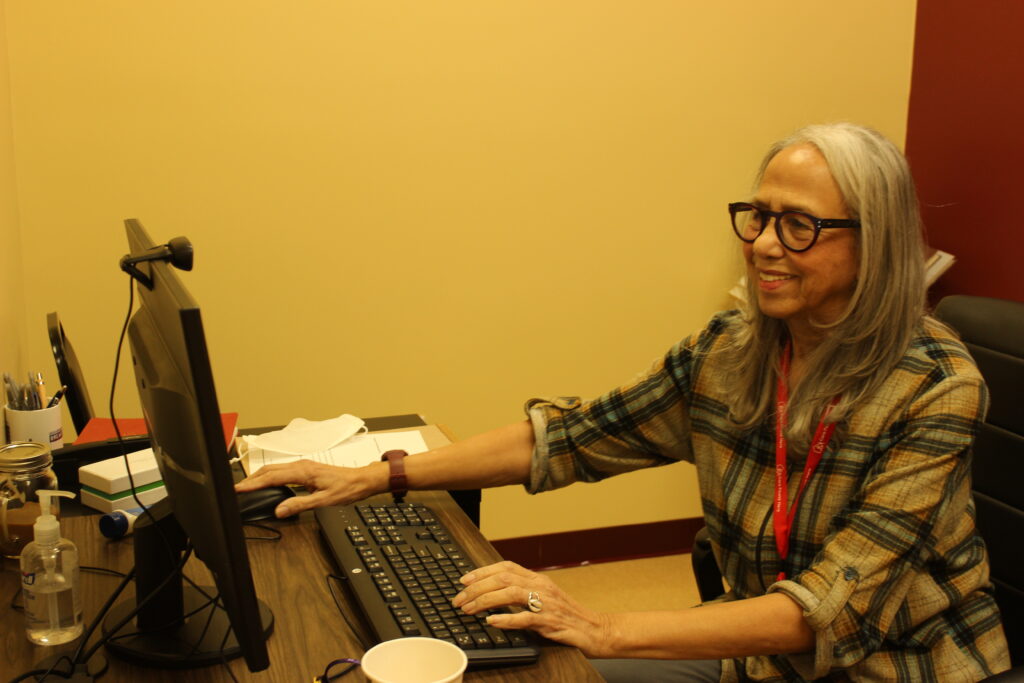
What kind of clients do you serve?
Basically I service people who have been homeless or undomiciled for various reasons. Obviously, a lot of them have mental health disorders that make it difficult for them to remain in housing without some type of supportive services. People have substance use problems, people have schizophrenia, people have bipolar disorder, probably severe depression or severe anxiety—which then somehow brings them to the shelter system.
When I was doing medical—same thing. They were homeless for the same reasons, but they at the same time they also medical issues. So the clientele has not changed for me since 1995. On one level, that’s a bad thing that we haven’t really changed the way that we can provide housing and medical services and mental health services to people. So that’s a problem, but we have organizations like Care For the Homeless that are here to provide those types of services.
However, I wish that we could solve the housing problem, which we could, if we built more housing. We also—I don’t know if people want to hear this—but one of the things we probably should have done is have better inpatient facilities, so that when people need to be there, they can be there, and then when they come back, they can be discharged into a supportive environment that doesn’t trigger their mental health problems.
Right, this is a very recent topic of discourse in the news, but of course has been going on for decades now. I’m curious what you think about this resurgence of concerns about mental health, your reaction to our current moment, and what you’re seeing.
There’s several things. We have to understand that our environment can contribute to people having mental health disorders and it’s not easy to live in a society where we don’t have social safety nets that could actually make people feel safe and make people feel secure. There’s no reason that people have to grow up in neighborhoods that are violent. There’s no reason that people have to live on the streets.
Of course, there’s not enough housing. If you look at other countries, particularly the Scandinavian countries with their social safety nets, not to say that there isn’t anxiety or depression, but they are probably less exacerbated by those issues than when you don’t have financial resources, you don’t have housing resources, you have no way to access medical.
It’s a conversation I was having: Well, if we took care of all those things, how much depression would we see? How much anxiety would we see? How much schizophrenia would we see? If you have a society that understands these mental health diagnoses, is there a way that society can support people, even though they may have schizophrenia? And there are societies that do it, and sometimes with medication or even without medication.
It’s difficult to live in this country. There’s so much going on. A lot of social media is problematic. We have a fabulous public school system, but we still have problems that not everybody gets the same level of education, not everybody has the same teachers who are experienced. Not everybody gets to go to a school that’s not crumbling. And so on.
One thing about the United States: We’re very creative. We always have great ideas. New York City has some of the most innovative services and programs out there to help people who have mental health disorders, who have medical problems, who don’t have insurance. But there’s now always a political will to bring that to fruition.
People are just averse to paying taxes. In Scandinavian countries, you pay a lot in taxes, but you know it’s worth it if you know that when you’re sixty-five, you’re not going to be living in the street. It’s worth it. You don’t have medical debt. The fact that people lose their life savings because of medical debt doesn’t make any sense.
All of these things contribute to stress. And then we have this concept that people should pull themselves up by their bootstraps. Well, I don’t know one person who pulled themselves up by their bootstraps. If you are grown, if you grow up in a family that’s had privilege, you will continue to have your privilege. That’s not bringing yourself up by your bootstraps.
Tell us about your recent accomplishment.
All professional organizations have something called fellows, and these are people who are inducted into the academy of their particular profession. So for nurses, you could become a fellow of the American Nurses Association.
I chose to do something international, so I was inducted into the School of Nursing and Midwifery, which is at the Royal College of Surgeons in Ireland. And what was wonderful about this fellowship is I didn’t need to be nominated. I could nominate myself—for the other ones, you have to have nominations. But I had to put together a portfolio, where I had to explain my teaching philosophy, my research philosophy, my nursing philosophy, and my leadership philosophy.
And it was a lot of work, but what I loved about it is, it’s a very self-reflective process about who I am. I was a little bit concerned that it might not be considered because I come from a pretty radical background, okay? And I’m quoting radical Irish nurses and radical American nurses. I don’t know how many people realize that Harriet Tubman was a nurse. And this is one of our greatest leaders bringing people to the Underground Railroad.
But what I loved about it is it also brought together my humanities background, because I have a pretty varied background. I have a humanities background, I have a public health background, I have a teaching background, and I have a clinical background. So I was able to bring all these in together to talk about who I was. And if they accept your application, the next step is to be interviewed, and I was interviewed.
I was accepted and I went to my induction in Dublin, Ireland on December 9th and it was so much fun. Aside from the fact being in Dublin is a great city—it’s a nice small little city. I did a lot of walking.
And also, right before I was inducted in this, I was inducted into the New York Academy of Medicine as a fellow. And that’s just based on recommendations. I didn’t have to prove myself—I mean, obviously you send a CV. But their induction was on the same day. I’m like, Yeah, no, I’m going to Dublin. So I chose not to go to my New York Academy of Medicine fellow induction.
So that’s my award, and what I’m hoping to do is now make an international connection, between some of the research that I’m interested in, and teaching, teaching philosophies and so on.
Congratulations, that’s incredible.
Thank you. Thank you.
You made the right decision taking Dublin over New York.
I agree. You should go, it’s a great city.
Why do you think CFH’s work is important?
So Care For the Homeless, as I said, we go way back, since 1995. Even though at the time I was there, they were not the Article 28 that they are now. So what they did is they funded people through Montefiore and hired a whole team. Their mission is to provide services, whether it be medical or behavioral or dental or so on, to people who lack services, even people who have insurance.
And so that mission has not changed and the work that they do is very, very important. Even if everybody had universal healthcare, Care For the Homeless has clinics that people can go to, so they should never go away. The only thing that should go away is that people are undomiciled! Or if they are, it’s just for a short period of time.
As I said, I’ve been with this organization since 1995, except for a ten-year period where I did not work for them. But I think they’ve always been there. And the key thing is that we’ve been able to take care of people who don’t have insurance, and in a good way. As someone who’s worked in free clinics—which I have problems with, because the free clinic can’t do continuity of care. Care For the Homeless can do continuity of care, so I can see somebody, and I can order any lab test that I want, knowing full well that it will be done.
Now, whether or not I see my patients on a regular basis, that’s a different issue, but that’s stuff that we try to work on, and I know that the patients that I see have other challenges that other people may or may not have. So I may not always get to see them and have continuity of care.
But this institution, Care For the Homeless, has always been there. And so that’s why I think Care For the Homeless should continue, just hopefully without the homeless part. Just Healthcare For People or something.

